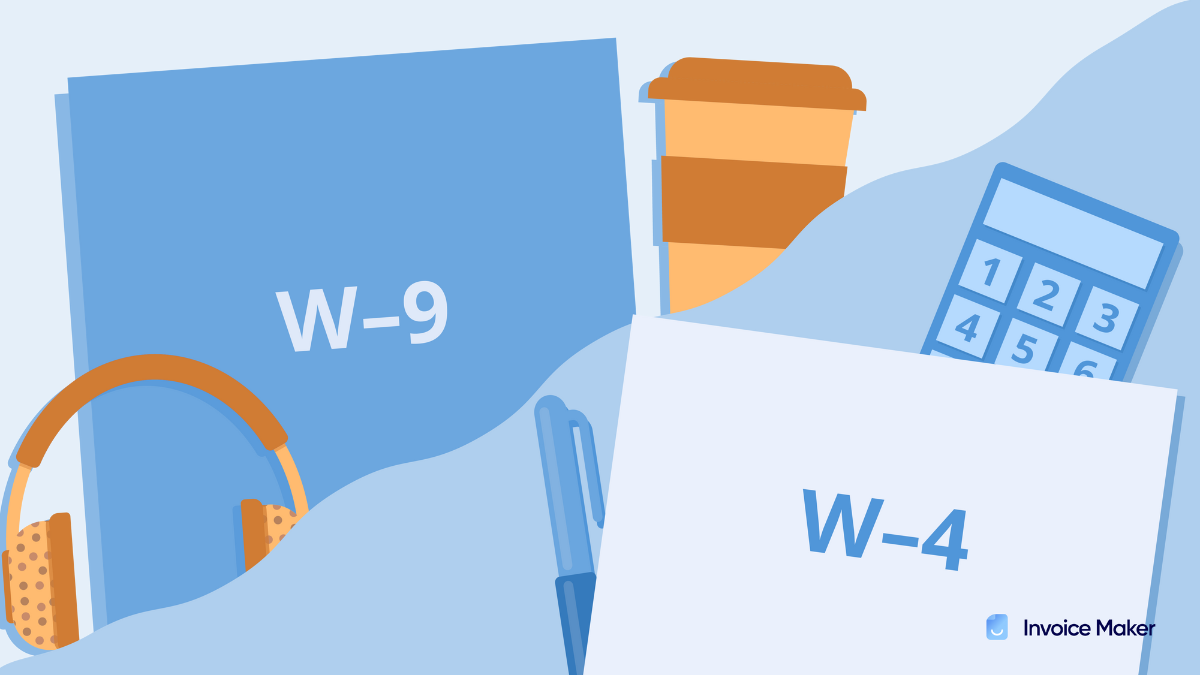How to Become a Freelance Writer with No Experience

Freelance writing is a dream job for many folks stuck in a cubicle. The fantasy is spending your time scribbling in notebooks, flying business class on research trips, flexing creative muscles, and earning a good living without submitting to traditional corporate employment’s restrictions and indignities.
Make a Free Invoice NowThe reality, unfortunately, doesn’t look much like that dream. But freelance writing can still be a viable and satisfying career path if you play your cards right. Here’s how to get started.
Types of Freelance Writers
Let’s start by bursting your bubble. If creative writing is your dream — writing novels, essays, poems, and other literary forms — be aware it takes a lot of luck to make a full-time living at it. Traditionally published authors only earn $11,000 annually on average.
Despite this disappointment, there is a long list of niches in freelance writing that pay a full-time income. Some options include the following specialties:
- Bloggers write (and often create other types of content) on a dedicated website, generating income by hosting ads rather than by being paid directly for their writing;
- Business writers create white papers, press releases, proposals, and other documents for companies;
- Copywriters write short-form persuasive text for brand advertising;
- Content writers create long-form articles, web content, blogs, profiles, and other types of content for brand marketing;
- Ghostwriters write blogs, articles, or book-length manuscripts under another person’s name and direction;
- Instructional writers create educational content like textbook copy, tests, study guides, curriculums, and course content for students, educators, and institutions;
- Journalists/Reporters research and write articles for newspapers and magazines;
- Technical writers translate complex technical language into readable copy for user manuals and other customer-facing documents, as well as for internal procedures manuals in a variety of high-tech industries; and
- Travel writers report on an area’s locations, hotels, restaurants, and other tourist features.
In addition, editing, proofreading, and fact-checking roles are available to writers with ancillary skills.
Getting Started
Maybe you’re already a writer, or writing is a big part of your current role. If you’re starting with zero writing experience (professional or otherwise), it’s wise to begin by working on basic skills.
A nonfiction writing or journalism class can be valuable (hit up your local community college, or Gotham Writers has excellent virtual “Essentials” classes). Once your craft is polished, think about professionalizing it.
Finding Clients
The obvious first question for any small business is how to find clients. Unlike brick-and-mortar businesses, a freelance writer can’t just open up a store and sit inside writing copy, hoping somebody pops in to buy some. So start small—begin with social and alumni networks, tell everyone you know you’re looking for freelance writing work, and publish a simple website.
Everyone with a website, brochure, or social media account might need a writer. It can take some time for the fruits of your networking to ripen, so it’s an excellent idea to hold onto full-time employment until you can earn income as a freelancer.
Building a Portfolio
Once you start getting work — any work, no matter how small — save a PDF of the published article, webpage, etc. These PDFs are clips you can use to create a digital portfolio that displays your skills, experience, and scope.
While it’s a general best practice not to undervalue your talent or undercut standard industry rates, the first few jobs you get are an exception to that rule. If possible, offer a discounted junior rate to your first few clients, knowing that accumulating those clips is part of your initial compensation.
Developing a Specialty
Once jobs become consistent, figure out where your best skills lie. Often, you’ll observe certain subjects, forms, or modes of writing that feel easier than others. This observation signifies you’ve found a specialty that fits your unique talents, interests, and abilities.
Once you’ve noticed that you excel at health writing, pursue clients in that space and highlight clips on that topic. Gaining specific expertise allows you to command a higher rate and puts you in a much smaller networking circle. Unless you have a strong desire to remain a generalist, pursue a specialty like it’s a major in college.
What to Expect
Expect work to be slow for a while. That “while” might be anything from months to years, depending on factors like your pre-existing connections and networks, the market you’re trying to break into, and good old-fashioned luck.
Once you start getting regular jobs, it becomes possible to pick up speed by consistently providing excellent work, producing creative marketing, and tending to networks. Most of the quality freelance writing work you’ll get will come from referrals, so nurturing professional relationships should be right up there with hitting deadlines when it comes to priorities.
Managing Time and Creating a Workflow
It can be challenging to manage time well when it’s just you, your laptop, and a looming deadline. The best way to start a freelance writing business is with intentional, quality time management and workflow planning from day one — even if your first job pays $50. Establish best practices from the ground up so you don’t have to retrofit them later when there’s much more work to juggle.
Setting working hours might sound counterintuitive. You wanted to freelance so you wouldn’t have to set the alarm in the morning, right? Sure, but to manage time well, you need to be intentional about it, so even if the workday starts at 11 am after a bit of exercise and relaxation, established “office hours” are invaluable.
Tracking your time is another essential tactic that allows you to analyze hourly rates and time needs for projects. It may feel silly at first when you’re only working a few hours a week, but once your calendar fills up, time-tracking is the only way to accurately project your ability to take on new work and hit meet deadlines.
Formally articulating your workflow (even if it is simple) is another way to set yourself up for success. Create a step-by-step process that results in every piece of writing leaving your desk after experiencing outlining, research, drafting, editing, proofing, client feedback, and revisions.
Tips from the Pros
Never. Ever. Miss. A Deadline.
The worst thing to do to any client relationship is turn work in late. Also, never turn in sloppy work—a client spotting a typo you missed is an easily preventable lousy look. “Clean copy” is gold for clients, and you want to become known as someone who reliably submits clean and timely copy.
Use Google Drive
If possible, do your work in Google Drive—the cloud-based software will prevent the high-key frustration of deleting a draft or a round of edits, and the collaboration tools are simple and effective.
Get Paid
Don’t do more work than you can afford to without receiving payment. 44% of freelancers report a client skipping out on payment. Consider invoicing more frequently or putting progress payments into your contract terms.
Exposure is Not Compensation
At the beginning of a freelance career, it’s okay to take some low-paying jobs but never work for free or “exposure” (exploitative tactic clients might use to try to convince newbies and amateurs to work for free).
“Making It” as a Freelance Writer
Whether it’s a specific annual income or hourly rate, a depth of expertise in a specific area, or winning work from a particular dream client, hitting a goal as a freelance writer is a fantastic feeling. You can make it happen when you put in the work with your mind and your laptop.


